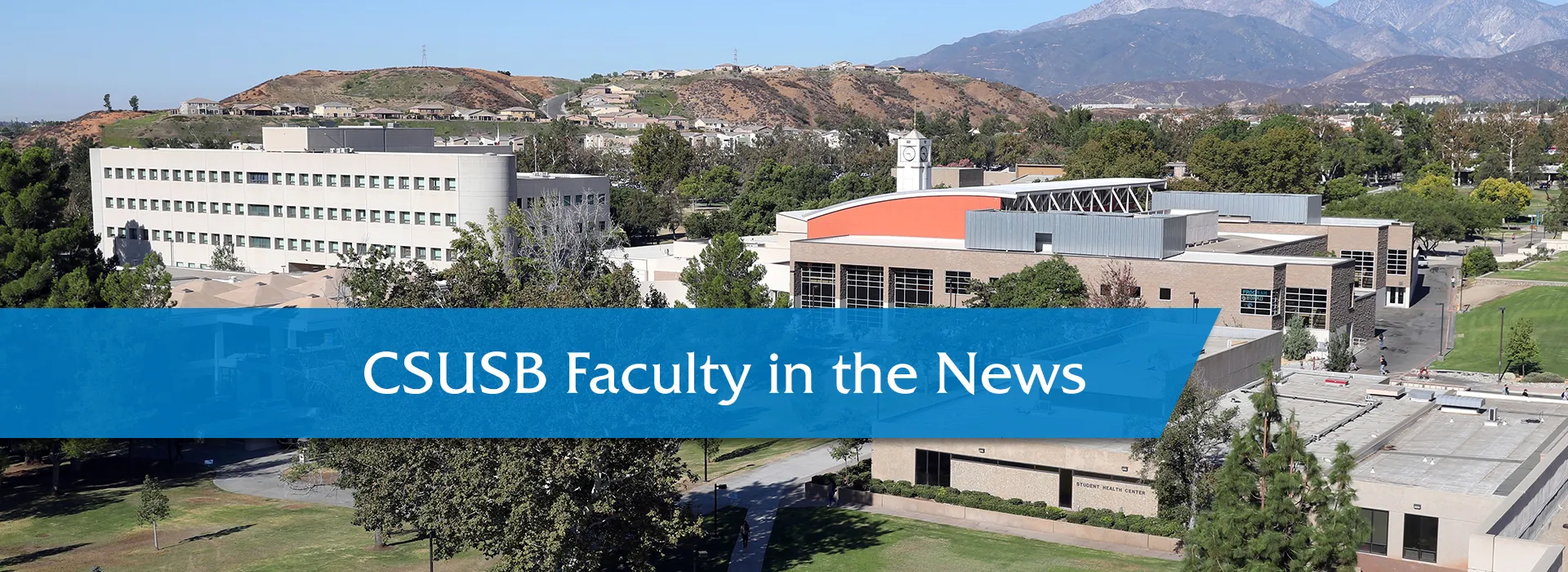
NOTE: This is an intermittent feature highlighting CSUSB faculty who are mentioned in the news. Faculty, if you are interviewed and quoted by news media, or if your work has been cited, and you have an online link to the article or video, please let us know. Contact us at news@csusb.edu.
The hate crime incident in Chicago had news media again reaching out to Brian Levin, criminal justice professor and director of the Center for the Study of Hate and Extremism housed in the College of Social and Behavioral Sciences, for his perspective.
For the online news site ProPublica, which sought to take a broader perspective on the incident, Levin said that while anti-white hate crimes make up a disproportionately small number of hate crimes given the white population, they are still given too little focus.
“[Anti-white crime] exists, and when it happens it does not get the same kind of moral outrage that it should,” he said. But Levin said this crime should not raise questions about “one group being bad and another group being good,” but should push society to face a larger problem of coarseness throughout the country.
“The more that Americans feel unmoored from the institutions and creed that holds us together, the more often this kind of crap is going to happen on all sides of the spectrum,” he said, adding that minority groups that have traditionally been targeted will also act out because of this in ways that shouldn’t be ignored. “The idea that a group that has faced discrimination — African Americans, Jews — is somehow inoculated against having the effects of an increasingly coarse society affect their members is an illusion.”
The article was published Jan. 5, 2016, and also appeared on other online news sites nationwide. It can be read at “Alleged Chicago assault reignites issue of hate crimes against whites.”
The Los Angeles Times examined the incident’s impact on social media, and what it says about the state of the country after the Nov. 8 presidential election.
“This comes at a heated time, when different political sides are trying to gain currency, which misses the point. Whether it’s [the Ku Klux] Klan and violence from them or violence like in this case, the actual facts of the situation can get lost,” said Levin, a criminal justice professor at CSUSB who tracks hate crimes. “Anytime something is captured on video, especially if it involves social media, it can become volatile and people become concerned just with what circulates in their social media world.”
The article was published Jan. 5, 2016, and can be read at “What the reaction to a viral Facebook video of a hate crime tells us about postelection America.”
And Levin wrote an opinion column for The Huffington Post, “Whether black or white, hate crimes are anathema to America.”
“When the gentlest or most vulnerable among us are targeted for brutality because of their race, we must vigorously call out and punish the perpetrators, while also denying a platform for opportunistic bigots to exploit divisions through rumor and lies,” he wrote.
“In a horrible chronological coincidence an unrepentant convicted white supremacist faces a possible death sentence for murdering nine of America’s best at an African-American South Carolina church, just as four black Chicago area young adults face lesser charges on a despicable, though non-fatal torture attack on a special needs young white man, that is arguably both an anti-disability hate crime, as well as an anti-white one.”
The article was published Jan. 5, 2016.